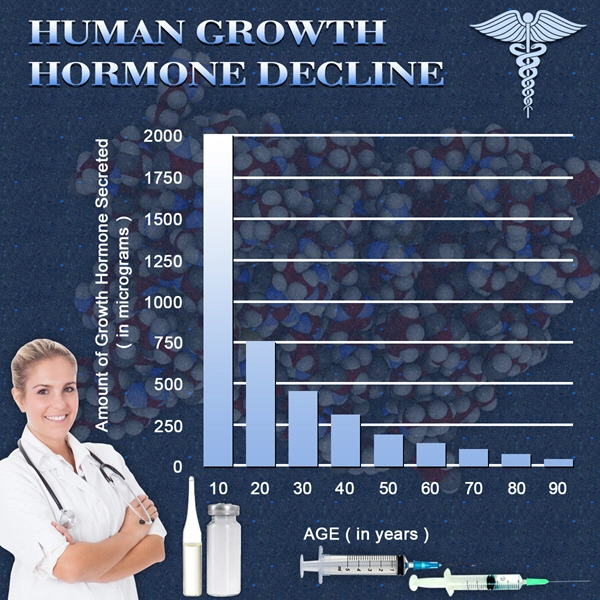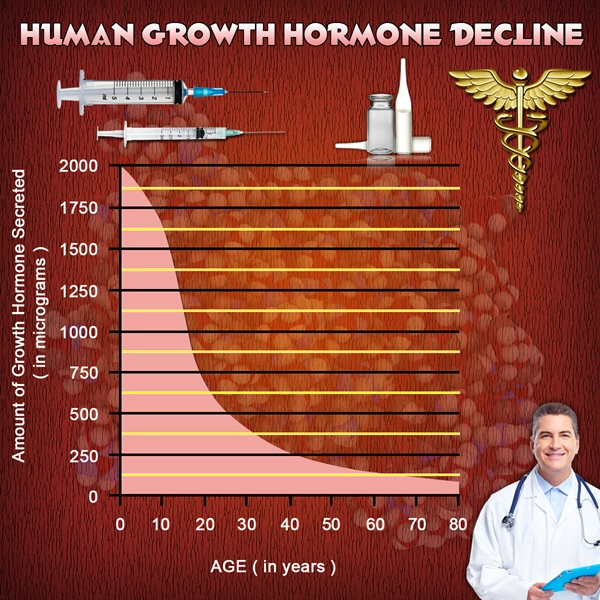Introduction to Male Infertility and Endocrinology
Male infertility is a significant concern that affects many American men, often leading to emotional distress and strained relationships. A crucial aspect of understanding and addressing this issue lies in the field of endocrinology, which studies the hormonal systems of the body. Hormones play a pivotal role in male reproductive health, influencing sperm production, libido, and overall fertility. This article delves into how endocrinological factors contribute to male infertility and what American men can do to address these issues.
The Hormonal Basis of Male Fertility
The male reproductive system is heavily regulated by hormones such as testosterone, follicle-stimulating hormone (FSH), and luteinizing hormone (LH). Testosterone, produced primarily in the testes, is essential for the development of male reproductive tissues and the maintenance of secondary sexual characteristics. FSH and LH, produced by the pituitary gland, stimulate the testes to produce sperm and testosterone, respectively. Any disruption in the production or balance of these hormones can lead to infertility.
Common Endocrinological Disorders Affecting Fertility
Several endocrinological disorders can impair male fertility. Hypogonadism, characterized by low testosterone levels, can result in reduced sperm production and libido. Hyperprolactinemia, where there is an excess of prolactin, can also inhibit testosterone production and affect fertility. Additionally, thyroid disorders, such as hypothyroidism or hyperthyroidism, can disrupt the hormonal balance necessary for normal reproductive function. American men experiencing symptoms such as decreased libido, erectile dysfunction, or difficulty conceiving should consider consulting an endocrinologist to explore these potential underlying causes.
Diagnosis and Treatment of Hormonal Imbalances
Diagnosing hormonal imbalances involves a comprehensive evaluation, including blood tests to measure hormone levels and semen analysis to assess sperm quality and quantity. Once a hormonal disorder is identified, treatment can vary based on the specific condition. For instance, testosterone replacement therapy may be recommended for men with hypogonadism, while medications to lower prolactin levels might be prescribed for those with hyperprolactinemia. In some cases, lifestyle modifications, such as weight management and stress reduction, can also improve hormonal balance and fertility.
The Role of Lifestyle in Hormonal Health
Lifestyle factors play a significant role in hormonal health and, consequently, male fertility. Obesity, for example, is linked to lower testosterone levels and can contribute to infertility. Regular exercise, a balanced diet, and adequate sleep can help maintain optimal hormonal levels. Additionally, avoiding excessive alcohol consumption and smoking can prevent further hormonal disruptions. American men should be aware of these factors and strive to adopt a healthy lifestyle to support their reproductive health.
Advancements in Endocrinological Research
Recent advancements in endocrinological research offer hope for improved treatments for male infertility. Studies are exploring the potential of hormone-modulating therapies and the role of genetic factors in hormonal regulation. These developments could lead to more personalized and effective treatments for men struggling with infertility. Staying informed about these advancements can empower American men to take proactive steps in managing their reproductive health.
Conclusion: Empowering American Men Through Endocrinological Insights
Understanding the role of endocrinology in male infertility is crucial for American men seeking to improve their reproductive health. By recognizing the impact of hormonal imbalances and taking steps to address them, men can enhance their fertility and overall well-being. Consulting with healthcare professionals, adopting a healthy lifestyle, and staying informed about the latest research are essential strategies for overcoming the challenges of male infertility. Through these efforts, American men can take control of their reproductive health and build fulfilling family lives.

- Endocrinology and Sleep: Impact on American Men's Health and Disorders [Last Updated On: March 7th, 2025] [Originally Added On: March 7th, 2025]
- PCOS Challenges and Management in Transgender American Men [Last Updated On: March 17th, 2025] [Originally Added On: March 17th, 2025]
- Dietary Strategies for Optimal Endocrine Health in American Males [Last Updated On: March 18th, 2025] [Originally Added On: March 18th, 2025]
- Vitamin D's Crucial Role in Endocrine Health for American Males [Last Updated On: March 18th, 2025] [Originally Added On: March 18th, 2025]
- Hormonal Shifts in Aging American Men: Endocrinology Insights and Management Strategies [Last Updated On: March 19th, 2025] [Originally Added On: March 19th, 2025]
- Endocrine Health and Cancer Risk in American Men: Hormones, Disruptors, and Prevention Strategies [Last Updated On: March 19th, 2025] [Originally Added On: March 19th, 2025]
- Endocrinology's Impact on Male Sexual Health: Hormones, Disorders, and Holistic Treatment [Last Updated On: March 20th, 2025] [Originally Added On: March 20th, 2025]
- Autoimmune Endocrine Disorders in American Males: Symptoms, Diagnosis, and Treatment Strategies [Last Updated On: March 20th, 2025] [Originally Added On: March 20th, 2025]
- Managing Endocrine Disorders and Type 2 Diabetes in American Men: Strategies and Insights [Last Updated On: March 21st, 2025] [Originally Added On: March 21st, 2025]
- Hormonal Optimization for American Male Athletes: Enhancing Performance Safely [Last Updated On: March 21st, 2025] [Originally Added On: March 21st, 2025]
- Lifestyle Choices Impacting Endocrine Health in American Men: Diet, Exercise, and More [Last Updated On: March 21st, 2025] [Originally Added On: March 21st, 2025]
- Endocrinology's Role in Weight Management for American Males: Hormonal Strategies [Last Updated On: March 21st, 2025] [Originally Added On: March 21st, 2025]
- Chronic Fatigue in Men: Endocrinology's Role and Treatment Strategies [Last Updated On: March 21st, 2025] [Originally Added On: March 21st, 2025]
- Endocrine Disruptors: Impact on American Males' Health and Mitigation Strategies [Last Updated On: March 22nd, 2025] [Originally Added On: March 22nd, 2025]
- Endocrine Health and Prostate Cancer: Insights for American Men [Last Updated On: March 23rd, 2025] [Originally Added On: March 23rd, 2025]
- Hormonal Influences on Men's Skin Health: Testosterone, Estrogen, and Cortisol Effects [Last Updated On: March 23rd, 2025] [Originally Added On: March 23rd, 2025]
- Endocrine Disorders and Autoimmune Diseases in American Men: Challenges and Management [Last Updated On: March 23rd, 2025] [Originally Added On: March 23rd, 2025]
- Managing Endocrine Disorders in Men with Heart Disease: A Comprehensive Approach [Last Updated On: March 23rd, 2025] [Originally Added On: March 23rd, 2025]
- Endocrine Health and Liver Function: Vital for American Males' Well-being [Last Updated On: March 23rd, 2025] [Originally Added On: March 23rd, 2025]
- Endocrinology and Kidney Health: Critical Insights for American Men's Well-being [Last Updated On: March 24th, 2025] [Originally Added On: March 24th, 2025]
- Endocrinology's Impact on Joint Health in American Men: Hormones and Mobility [Last Updated On: March 24th, 2025] [Originally Added On: March 24th, 2025]
- Gout in American Males: Endocrine Influences and Multidisciplinary Management Strategies [Last Updated On: March 24th, 2025] [Originally Added On: March 24th, 2025]
- Endocrine Health and Vision: Impacts on American Males [Last Updated On: March 24th, 2025] [Originally Added On: March 24th, 2025]
- Endocrine Health and Mental Well-being in American Males: A Comprehensive Overview [Last Updated On: March 24th, 2025] [Originally Added On: March 24th, 2025]
- Endocrine Health Impacts Respiratory Function in American Males: Insights and Management [Last Updated On: March 24th, 2025] [Originally Added On: March 24th, 2025]
- Endocrine Health's Impact on Hearing in American Males: Prevention and Management [Last Updated On: March 24th, 2025] [Originally Added On: March 24th, 2025]
- Alcohol's Impact on Endocrine Function and Health in American Males [Last Updated On: March 24th, 2025] [Originally Added On: March 24th, 2025]
- Hormonal Influences on Muscle Health in American Males: Testosterone, GH, IGF-1, Cortisol [Last Updated On: March 24th, 2025] [Originally Added On: March 24th, 2025]
- Exploring Endocrinology's Role in Treating ADHD in American Males [Last Updated On: March 25th, 2025] [Originally Added On: March 25th, 2025]
- Smoking's Impact on Endocrine Health in American Men: Risks and Cessation Strategies [Last Updated On: March 25th, 2025] [Originally Added On: March 25th, 2025]
- Endocrinology's Crucial Role in Treating Male Eating Disorders in the U.S. [Last Updated On: March 25th, 2025] [Originally Added On: March 25th, 2025]
- Hormonal Imbalances and Novel Endocrinological Treatments for Male Anxiety [Last Updated On: March 25th, 2025] [Originally Added On: March 25th, 2025]
- Hormonal Impacts on Hair Health in American Men: Androgens, Lifestyle, and Treatments [Last Updated On: March 25th, 2025] [Originally Added On: March 25th, 2025]
- Exploring the Impact of Hormonal Imbalances on Male Depression in the USA [Last Updated On: March 25th, 2025] [Originally Added On: March 25th, 2025]
- Sleep's Crucial Role in Endocrine Health for American Males [Last Updated On: March 26th, 2025] [Originally Added On: March 26th, 2025]
- Managing Endocrine Disorders in American Men with Neurological Conditions: Strategies and Insights [Last Updated On: March 26th, 2025] [Originally Added On: March 26th, 2025]
- Stress Impact on Male Endocrinology: HPA Axis, Hormones, and Management Strategies [Last Updated On: March 26th, 2025] [Originally Added On: March 26th, 2025]
- Endocrine Disorders in Men: Impact on Eye Health and Management Strategies [Last Updated On: March 26th, 2025] [Originally Added On: March 26th, 2025]
- Hormonal Influences on Men's Oral Health: Insights and Management Strategies [Last Updated On: March 27th, 2025] [Originally Added On: March 27th, 2025]
- Endocrine Disorders in American Men: Impact on Skin Health and Management Strategies [Last Updated On: March 27th, 2025] [Originally Added On: March 27th, 2025]
- PTSD in American Males: Exploring Endocrinological Interventions and Treatment Integration [Last Updated On: March 27th, 2025] [Originally Added On: March 27th, 2025]
- Endocrine-Gastrointestinal Interplay: Management Strategies for American Men [Last Updated On: March 28th, 2025] [Originally Added On: March 28th, 2025]
- Hormonal Imbalances and Foot Health: A Guide for American Men [Last Updated On: March 28th, 2025] [Originally Added On: March 28th, 2025]
- Hormonal Imbalances and Innovative Endocrinological Treatments for Male Insomnia in the USA [Last Updated On: March 28th, 2025] [Originally Added On: March 28th, 2025]
- Exercise Impact on Endocrine System in American Males: Hormonal Changes and Health Benefits [Last Updated On: March 28th, 2025] [Originally Added On: March 28th, 2025]
- Endocrine-Digestive Health Link: Hormones, Diet, and Exercise for American Males [Last Updated On: March 28th, 2025] [Originally Added On: March 28th, 2025]
- Hormonal Balance and Immune Health in American Men: A Comprehensive Guide [Last Updated On: March 28th, 2025] [Originally Added On: March 28th, 2025]
- Endocrine Health Impacts on Nail Conditions in American Males: Insights and Management [Last Updated On: March 29th, 2025] [Originally Added On: March 29th, 2025]
- Nutrition's Impact on Endocrine Health in American Males: Macronutrients, Micronutrients, and Diets [Last Updated On: March 29th, 2025] [Originally Added On: March 29th, 2025]
- Caffeine's Impact on Endocrine Function in American Males: Benefits and Risks [Last Updated On: March 30th, 2025] [Originally Added On: March 30th, 2025]
- Endocrinology's Role in Enhancing Bipolar Disorder Treatment for American Males [Last Updated On: March 30th, 2025] [Originally Added On: March 30th, 2025]
- Endocrine Disorders and Ear Health in American Men: A Holistic Management Approach [Last Updated On: April 1st, 2025] [Originally Added On: April 1st, 2025]
- Hormonal Impacts on Nasal Health in American Men: Insights and Management [Last Updated On: April 3rd, 2025] [Originally Added On: April 3rd, 2025]
- Hydration's Vital Role in Endocrine Health for American Males: A Comprehensive Overview [Last Updated On: April 3rd, 2025] [Originally Added On: April 3rd, 2025]
- Endocrine Health's Impact on Hand Health in American Males: A Comprehensive Analysis [Last Updated On: April 3rd, 2025] [Originally Added On: April 3rd, 2025]
- Endocrine System's Impact on Throat Health in American Males: Symptoms and Management [Last Updated On: April 6th, 2025] [Originally Added On: April 6th, 2025]
- Hormonal Imbalances and Cardiovascular Health in American Men: A Comprehensive Overview [Last Updated On: April 7th, 2025] [Originally Added On: April 7th, 2025]
- Managing Endocrine Disorders and Lung Health in American Men: A Holistic Approach [Last Updated On: April 7th, 2025] [Originally Added On: April 7th, 2025]
- Endocrinological Interventions Enhance Male Schizophrenia Treatment in the USA [Last Updated On: April 8th, 2025] [Originally Added On: April 8th, 2025]
- Endocrine System's Impact on Blood Health in American Males: A Comprehensive Guide [Last Updated On: April 9th, 2025] [Originally Added On: April 9th, 2025]
- Hormonal Influences on Brain Health and Cognitive Function in American Men [Last Updated On: April 9th, 2025] [Originally Added On: April 9th, 2025]
- Dietary Supplements' Impact on Endocrine Health in American Males: Risks and Benefits [Last Updated On: April 9th, 2025] [Originally Added On: April 9th, 2025]
- Managing Endocrine Disorders in American Men with Kidney Disease: A Collaborative Approach [Last Updated On: April 10th, 2025] [Originally Added On: April 10th, 2025]
- Mental Health's Impact on Endocrine Function in American Men: A Comprehensive Analysis [Last Updated On: April 10th, 2025] [Originally Added On: April 10th, 2025]
- Endocrine and Nerve Health in American Males: Hormones, Disorders, and Lifestyle Impact [Last Updated On: April 11th, 2025] [Originally Added On: April 11th, 2025]
- Exploring Endocrinology's Role in Treating Male Autism in the U.S. [Last Updated On: April 12th, 2025] [Originally Added On: April 12th, 2025]
- Exploring Endocrinology's Role in Managing Male OCD: A New Treatment Frontier [Last Updated On: April 15th, 2025] [Originally Added On: April 15th, 2025]



List of USA state clinics - click a flag below for blood testing clinics.
Word Count: 570



















































